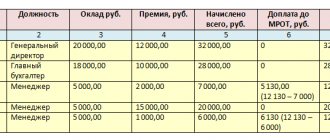Scope and scope
Article 11 of the Russian Labor Code (LC) determines that labor legislation and other regulatory documents, including labor law norms (LA), regulate labor and other relations that are directly related to them. In addition, they may relate to those relationships in which personal labor is used in situations provided for by the code or other legislative acts of federal significance.
The scope of labor law is the area in which its rules are applicable. The scope of labor legislation is quite extensive.
Thus, paragraph 1 of Article 11 establishes that the norms of this branch of law apply to all employees who have entered into employment contracts with employers. This type of contract can be concluded by any person who has legal personality, that is, both a legal entity and an individual who provides the work.
Not all labor relations between employers and employees are formalized properly. The absence of a contract is regarded as non-compliance with labor laws, making the application of its requirements quite difficult. However, a person who does not have a written employment contract is not deprived of the right to provide evidence of the existence of an employment relationship.
https://youtu.be/pNwaYcGQq4A
Action of TC in space
The effect of labor legislation and other acts containing labor law norms in space and time is fixed by certain norms of the Labor Code of Russia.
The scope of labor law norms in space is regulated by Art. 13 Labor Code of Russia. This article provides the following rules for action in the space of various TP sources:
- the effect of federal laws and other regulatory documents of Russia, which contain TC norms, covers the entire territory of the country. The exception is for documents that provide otherwise.
- The effect of legislative and other regulatory documents that contain TC norms and adopted by various constituent entities of Russia covers the territory of a specific constituent entity of Russia.
- The effect of regulations adopted by local government structures covers the area of the relevant municipality.
- The effect of local regulatory documents, which are adopted by specific employers, applies to the workers they hire, and it does not matter the place where they perform the work.
Effect of labor legislation over time
In addition to the rules on the basis of which labor legislation operates in space, there are a number of rules that determine its operation in time. The general rules establish that the day on which the law or any regulatory document that contains labor standards comes into force is indicated in the document itself or a special act to it. If there is no document indicating the date, then the normative act is considered to have entered into force some time after the fact of its official publication:
- for laws, this period of time is 10 days;
- for presidential decrees and government regulations - 7 days;
- It takes 10 days for regulatory legal acts of executive authorities to come into force.
As for the time of termination of the TC norms, this may be due to:
- with the end of the validity period of a legislative or regulatory document;
- the adoption of another act that has the highest legal force;
- recognition of the adopted document or some of its provisions as having lost their legal force.
The effect of labor legislation and other acts containing labor law norms is not given retroactive force.
Article TCRF 11. Effect of labor legislation and other acts containing labor law norms
Commentary on Article 11
1. Article 11 established a broad scope of labor law for a number of persons, due to which laws and other sources of labor law generally apply to all workers and all employers using personal hired labor.
According to the wording of Part 1 of Art. 11 of the Labor Code, the scope of labor law practically involves all persons who work under conditions characteristic specifically for labor relations (see Articles 16, 57 of the Labor Code and commentary thereto), and regardless of whether it was drawn up or not drawn up by the employer , and whether or not the employee signed the written text of the employment contract. This conclusion is based on the fact that the actual admission by the employer of any person to work means the conclusion of an employment contract with him (see Articles 15, 16 of the Labor Code and the commentary thereto) and, therefore, the inclusion of the relations that have arisen between them within the scope of labor standards. rights. Thus, Part 1 of Art. 11 of the Labor Code proclaims the presumption of validity of labor law norms in relation to all persons who systematically use personal labor in the interests and under the direction of the employer.
Due to the direct effect of the principle of equality of rights and opportunities for workers (see Article 2 of the Labor Code and the commentary thereto), labor law standards must apply to all workers, regardless of their gender, race, skin color, nationality, language, origin, property, social, family and official status, age, place of residence, attitude to religion, political beliefs, membership or non-membership in public associations, as well as other circumstances not related to the business qualities of employees (see Article 3 of the Labor Code and the commentary thereto). Based on the content of this principle, labor law norms now apply to persons associated with the employer (organization) not only through labor relations, but also through relations of a property or organizational nature. In this sense, the effect of labor law norms is not limited to the circle of persons who have the usual status of an employee; they also apply to employee-shareholders, employee-members of partnerships, representatives of management personnel of various legal entities, etc.
This statement is also confirmed by the content of paragraph 8 of the Resolution of the Plenum of the Supreme Court of the Russian Federation of March 17, 2004 No. 2 “On the application by the courts of the Russian Federation of the Labor Code of the Russian Federation”, by virtue of which the norms of this Code apply to all employees who have entered into an employment contract with the employer, and, accordingly, are subject to application by all employers (legal entities and individuals) regardless of their organizational and legal forms and forms of ownership.
In relation to representatives of management personnel of various organizations, the wide scope of labor law norms means the deprivation of legal force of all those models of their legal status that are based only on civil law principles. Because of this, the legal status of persons performing the functions of sole bodies of legal entities must also be based on the employment contract concluded with them (see articles of Chapter 43 of the Labor Code and the commentary thereto).
2. Labor law norms apply to all employers operating in the territory of the Russian Federation. At the same time, to recognize an employer as a subject of labor law, as a general rule, it does not matter: a) whether he is an individual or a legal entity (organization); b) whether its activities are financed from any budget (state, municipal, etc.) or whether it operates on a commercial basis; c) whether the employing organization was created at the expense of national or foreign investments, etc. For the operation of labor law norms, in principle, factors such as the organizational and legal form of a legal entity, its economic potential, form of ownership, number of employees, etc., do not matter. Of course, all these circumstances and factors may cause certain features in the regulation of labor relations, but they should be established only by the Labor Code or other federal laws (see paragraph 5 of the commentary to this article).
3. Part 3 art. 11 develops the idea of a presumption of employment legal relations for any individual who performs regular paid work with personal labor in the interests of another person. The practical implementation of this idea ensures a wide scope of application of labor law norms, an additional guarantee of which is the opportunity provided to the court to reclassify civil legal relations that formally bind an employee and employer on the basis of a relevant agreement into labor relations. Thus, within the framework of judicial jurisdiction, there is actually a real opportunity to recognize as legally void civil transactions that mediate the use of personal hired labor, and to extend the provisions of labor legislation to the parties to these relations in the case where the actual content of these relations is labor, and not civil law. It should be noted that the right to make such a decision is granted only to the judicial authorities. State labor inspectors do not have it, despite the fact that, as a general rule, they are authorized to issue various instructions to the employer that are subject to mandatory execution (see Article 357 of the Labor Code and the commentary thereto).
The possibility of recognizing a civil law contract as an employment contract develops into a practical judicial decision, at least due to the fact that the interested person has filed a claim (application) with the judicial authorities for recognition of the labor relations connecting him with a specific employer, and has provided evidence in favor of the actual existence labor relations, thereby confirming the truth of the allegations.
Article 11 of the Labor Code does not define the circle of entities authorized to initiate the extension of labor law standards to the relationship between a specific employee and employer. In principle, these could be all interested parties who, in accordance with the law, are given the right to file a claim or application to the court for disputes arising from individual labor relations. However, current legislation does not provide such an opportunity to the employer. By virtue of Part 2 of Art. 391 of the Labor Code, he has the right to file a claim in court only if the employee is held financially liable for damage caused to the employer, therefore, if the employer takes the initiative to reclassify a civil contract concluded with a specific person into an employment contract, then he should obtain consent employee for recognition and proper documentary re-registration of the civil contract concluded between them into an employment contract.
By virtue of Part 1 of Art. 391 of the Labor Code, the right to this claim belongs primarily to the employee as a party to labor relations. The practical meaning of an employee filing this claim may be that the sought court decision may have a prejudicial nature for him in terms of receiving various social benefits, for example, compensation for damage caused to his health, counting work time into his seniority, confirming the need for the employer to pay insurance premiums , recognition of the right to benefits, guarantees, etc.
Since the prosecutor and the trade union also have the right to apply to the court in defense of the rights, freedoms and legitimate interests of citizens (Part 1 of Article 45 and 46 of the Code of Civil Procedure), they also have the opportunity to appeal to the judicial authorities in order to recognize those formally based on a contract as labor civil law relationship between the employee and the employer.
Any plaintiff (applicant) must provide the court with evidence demonstrating the nature of the labor relationship connecting a particular person with the employer. Thus, he must confirm the facts indicating the employee’s intentions to enter into an employment relationship with the employer on the terms inherent in the content of the employment contract, and not in a civil law transaction (see Articles 56, 57 of the Labor Code and the commentary thereto).
In other words, the initiator of the trial is obliged to prove the fact of the absence of a direct expression of the employee’s will to conclude a civil contract with the employer and the fact of his expression of will to conclude an employment contract, which the employer did not take into account when formalizing their relationship. A different solution to the issue would mean a narrowing of the civil legal capacity of individuals and legal entities and would not comply with the provisions of Part 3 of Art. 55 of the Constitution of the Russian Federation, as well as Art. 11 TK.
A court decision confirming the labor nature of the legal relationship connecting an individual with the employer obliges the latter to formalize the employment contract properly (see Articles 67, 68 of the Labor Code and the commentary thereto). The date of entry into force of this decision should be considered the day of entry into force of the corresponding civil law contract, and in the absence of a clause about it - the day of signing the civil law contract. From the same day, the specified court decision is considered as a legal act confirming the occurrence of a legal fact that served as the basis for the emergence of labor relations between an individual and an employer. From this point of view, it will have a generally binding legal significance for all third bodies and persons in terms of the recognition and implementation of various labor rights and obligations of the employee and the employer.
4. The wide scope of labor law norms for a circle of persons, in addition to what was said in paragraphs 1 and 2 of the commentary to this article, is also manifested in the fact that they, as a general rule, apply to labor relations involving not only Russian, but and foreign citizens, as well as stateless persons, employees of international organizations, foreign legal entities and organizations created through foreign investments.
According to Part 3 of Art. 62 of the Constitution of the Russian Federation and Art. 4 of the Federal Law of July 25, 2002 N 115-FZ “On the legal status of foreign citizens in the Russian Federation”, foreign citizens and stateless persons enjoy rights in the Russian Federation and bear responsibilities on an equal basis with Russian citizens, except for cases provided for by federal or international law agreement of the Russian Federation. Accordingly, they have a general civil legal personality, within the framework of which they exercise the right to freely dispose of their abilities to work, choose their type of activity and profession, taking into account the restrictions provided for by federal law (Clause 1 of Article 13 of the Federal Law of July 25, 2002).
At the same time, foreigners and stateless persons are equal in their legal status to citizens of the Russian Federation only if they are legally present on the territory of the Russian Federation. In turn, they are recognized as legally present in Russia when they have a residence permit, or a temporary residence permit, or a visa, or other documents provided for by federal law or an international treaty of the Russian Federation, confirming the right of a foreign citizen to stay (reside) in Russia , and comply with the requirements of the legislation on migration registration, paragraph. 8 clause 1 art. 2 of the Federal Law of July 25, 2002 (Federal Law of June 30, 2006 N 109-FZ “On migration registration of foreign citizens and stateless persons in the Russian Federation”).
However, despite the legal status equal to Russian workers, a foreign citizen, as well as a stateless person, have the right to carry out labor activities in Russia only in accordance with the permitting procedure, which presupposes: a) the employer obtaining permission from the Federal Migration Service or its territorial bodies to attraction and use of foreign workers; b) receipt by a foreign worker or stateless person of a work permit also from the Federal Migration Service or its territorial bodies of the executive authority in charge of employment issues. This procedure is regulated by: a) Rules for issuing permits for foreign citizens to carry out temporary labor activities in the Russian Federation, approved by Decree of the Government of the Russian Federation of November 15, 2006 N 681; b) Resolutions of the Government of the Russian Federation of November 11, 2006 N 665 “On approval of the 2007 quota for entry into the Russian Federation for the purpose of carrying out work activities”; dated November 15, 2006 N 682 “On approval for 2007 of the quota for issuing work permits to foreign citizens who arrived in the Russian Federation in a manner that does not require a visa”; November 15, 2006 N 683 “On establishing for 2007 the permissible share of foreign workers employed by business entities operating in the field of retail trade on the territory of the Russian Federation” (Rossiyskaya Gazeta. 2006. November 16).
This permitting procedure does not apply to foreign citizens or stateless persons:
1) permanently residing in the Russian Federation;
2) temporarily residing in the Russian Federation;
3) who are employees of diplomatic missions, employees of consular offices of foreign states in the Russian Federation, employees of international organizations, as well as private domestic workers of these persons;
4) who are employees of foreign legal entities (manufacturers or suppliers) performing installation (assembly supervision) work, service and warranty maintenance, as well as post-warranty repairs of technical equipment supplied to the Russian Federation;
5) who are journalists accredited in the Russian Federation;
6) students studying in the Russian Federation in educational institutions of vocational education and performing work during the holidays;
7) studying in the Russian Federation in educational institutions of vocational education and working in their free time as educational support staff in the educational institutions in which they study;
 invited to the Russian Federation as teachers to conduct classes in educational institutions, with the exception of persons entering Russia to engage in teaching activities in institutions of professional religious education (clause 4 of article 13 of the Federal Law of July 25, 2002).
invited to the Russian Federation as teachers to conduct classes in educational institutions, with the exception of persons entering Russia to engage in teaching activities in institutions of professional religious education (clause 4 of article 13 of the Federal Law of July 25, 2002).
A number of restrictions have been established for the work activities of foreigners and stateless persons. In particular, a foreign citizen temporarily residing in the Russian Federation does not have the right to carry out labor activities outside the boundaries of the constituent entity of the Russian Federation in whose territory he is allowed temporary residence (clause 5 of Article 13 of the Federal Law of July 25, 2002). In turn, all foreign citizens (stateless persons) do not have the right to:
1) be in the state or municipal service;
2) fill positions in the crew of a ship sailing under the State Flag of the Russian Federation, in accordance with the restrictions provided for by the Merchant Shipping Code of the Russian Federation;
3) be a member of the crew of a Russian warship or another vessel operated for non-commercial purposes, as well as an aircraft of state or experimental aviation;
4) be the commander of a civil aviation aircraft;
5) be hired to work at facilities and organizations whose activities are related to ensuring the security of the Russian Federation. The list of such objects and organizations is approved by the Government of the Russian Federation;
6) engage in other activities and hold other positions, the admission of foreign citizens to which is limited by federal law (clause 1 of article 14 of the Federal Law of July 25, 2002).
The wide scope of labor law is also manifested in the extension of its norms to all employers, regardless of whether they are Russian or foreign citizens (stateless persons) or legal entities. In other words, the subject of Russian labor law is every employer who provides regular paid work to any individual on the territory of Russia. In fact, labor law norms do not apply only to employers excluded from the scope of labor law by federal law or an international treaty of the Russian Federation. In addition, based on the principle of extraterritoriality, the norms of Russian labor law cannot be extended to the territory of foreign diplomatic missions, as well as to their employees accredited in Russia.
5. As a general rule, the norms that make up the body of the branch of labor law are characterized by unity, which makes it possible to provide equal rights and opportunities to different workers employed by a variety of employers, and thereby ensure the fundamental commonality of legal regulation of labor throughout the Russian Federation. However, along with unity, labor law is characterized by differentiation, which represents the introduction of certain features into the legal regulation of labor, which are based either on partial limitation of the operation of general norms of labor legislation, or on the creation of additional rules addressed to certain categories of workers (see Article 251 of the Labor Code and commentary to it). In practical terms, any differentiation in the legal regulation of labor results in either exceptions or additions to the legal status of certain categories of workers and ultimately leads to a formal violation of the principle of legal equality with other workers. Because of this, all features in the legal regulation of specific labor, expressed in withdrawals of the employee’s labor rights, should be established only by the Labor Code or other federal laws (see paragraph 13, part 1, article 6 of the Labor Code and the commentary thereto). In turn, differentiation of labor law, leading to the addition of labor rights to any category of workers and the creation of certain labor benefits or guarantees for its members, can be established both by labor legislation and other regulatory legal acts containing labor law norms ( see Article 5 of the Labor Code and commentary thereto), as well as collective agreements, agreements and employment contracts (see Article 9 of the Labor Code and commentary thereto). At the same time, the content of the listed sources of labor law should not lead to unjustified discrimination against other categories of workers or other workers (see Article 3 of the Labor Code and the commentary thereto).
The differentiation of labor law norms is usually based on: a) the subjective characteristics of the employee or employer; b) the specifics of the employee’s labor function; c) mode, place of employment or industry characteristics of labor for a specific category of workers; d) the area in which this or that work takes place; e) the uniqueness of the labor legal relationship between the employee and the employer.
In relation to an employee, the differentiation of labor law norms is based on factors such as gender, age, family responsibilities, and completion of training. Accordingly, the Labor Code highlights in separate chapters the features of the legal regulation of labor: a) women and persons with family responsibilities (see articles of Chapter 41 of the Labor Code and commentary thereto); b) minors (see articles of Chapter 42 of the Labor Code and commentary thereto); c) persons combining work with study (see articles of Chapter 26 of the Labor Code and commentary thereto). The absence of Russian citizenship in accordance with the Federal Law of July 25, 2002 is the basis that determines the features of the legal status of employees from among foreign citizens and stateless persons (see paragraph 3 of the commentary to this article).
Regarding the employer, the differentiation of labor law norms is based on its affiliation with: a) individuals (see articles of Chapter 48 of the Labor Code and commentary thereto); b) small business organizations (see Article 59 of the Labor Code and commentary thereto); bankrupt organizations (Federal Law of October 26, 2002 N 127-FZ “On Insolvency (Bankruptcy)”).
The specifics of the employee’s labor function form the basis for identifying the features of the legal status of: a) state and municipal employees (Federal Law of July 27, 2004 N 79-FZ “On the State Civil Service of the Russian Federation”; Federal Law of January 8, 1998 N 8 -FZ “On the fundamentals of municipal service in the Russian Federation”); b) the head of the organization and members of the collegial executive body of legal entities (see articles of Chapter 43 of the Labor Code and commentary thereto).
Depending on the specifics of the regime, place of application or sectoral characteristics of labor, the features of labor regulation are highlighted: a) persons working on a rotational basis (see articles of Chapter 47 of the Labor Code and commentary thereto), b) transport workers (see articles of Chapter 51 of the Labor Code and a commentary thereto); c) teaching staff (see articles of Chapter 52 of the Labor Code and commentary thereto); d) employees sent to work in diplomatic missions and consular offices of the Russian Federation, as well as in representative offices of federal executive authorities and state institutions of the Russian Federation abroad (see articles of Chapter 53 of the Labor Code and commentary thereto); e) employees of religious organizations (see articles of Chapter 54 of the Labor Code and commentary thereto); e) homeworkers (see articles of Chapter 49 of the Labor Code and commentary thereto). The fact that the area in which the work takes place belongs to the regions of the Far North and equivalent areas determines the preferential nature of the legal regulation of relations between persons working in the relevant regions (see articles of Chapter 50 of the Labor Code and the commentary thereto).
The uniqueness of the labor legal relationship between the employee and the employer is a factor that determines the differentiation of the legal regulation of labor: a) part-time workers (see articles of Chapter 44 of the Labor Code and commentary thereto); b) employees who have entered into an employment contract for a period of up to two months (see articles of Chapter 45 of the Labor Code and commentary thereto); c) workers engaged in seasonal work (see articles of Chapter 46 of the Labor Code and commentary thereto).
6. The Labor Code has a wide, but at the same time not unlimited scope. Every citizen of our country has the right to dispose of his abilities, to choose any type of socially useful activity not prohibited by law, including military and other service, entrepreneurial activity, independent work, etc. (Articles 32, 34, 37 of the Constitution of the Russian Federation). In addition, compulsory military service is carried out in our country not only on a voluntary basis, but also by virtue of conscription for compulsory military service in order to fulfill the constitutional obligation of a citizen of the Russian Federation (Article 59 of the Constitution of the Russian Federation). From these positions, the effect of labor law norms contained in laws and other regulatory legal acts does not extend to persons belonging to the category: a) military personnel in the performance of their duties; b) members of boards of directors (supervisory boards) performing their functions without concluding an employment contract with the relevant organization; c) working under civil law contracts (for example, contract agreements - Article 702 of the Civil Code, contracts for the performance of research, development and technological work - Article 769 of the Civil Code, contracts for the provision of paid services - Article 779 of the Civil Code) and etc.
At the same time, labor legislation applies to civil servants (with the specifics established by Federal Law No. 79-FZ of July 27, 2004 “On the State Civil Service of the Russian Federation”); municipal employees (with the features provided for by the Federal Law “On the Fundamentals of Municipal Service of the Russian Federation”); prosecutorial workers (clause 1 of article 43 of the Law of the Russian Federation of January 17, 1992 N 2202-1 “On the Prosecutor’s Office of the Russian Federation”); employees of customs authorities (Article 4 of the Federal Law of July 21, 1997 N 114-FZ “On Service in the Customs Authorities of the Russian Federation”), etc. In the field of regulation of working time, labor legislation applies to military personnel (Article 11 of the Federal Law dated May 27, 1998 N 76-FZ “On the status of military personnel”); employees of internal affairs bodies (Article 43 of the Regulations on Service in the Internal Affairs Bodies of the Russian Federation, approved by Resolution of the Supreme Council of the Russian Federation of December 23, 1992 N 4202-1).
Contained in Part 8 of Art. 11 of the Labor Code, the list of persons who are not subject to labor law norms is formulated as open. This circumstance makes it possible to supplement it, but only through the adoption of relevant federal laws.
Comments to the Labor Code of the Russian Federation
Publishing House "Gorodets", 2007
Source: SPS Consultant
scope of labor law
Limits of general norms
Article 11 of the Labor Code of the Russian Federation also establishes general provisions on the basis of which legislative norms in the field of labor relations operate. This rule determines that these provisions apply to persons who are participants in labor relations, namely:
- employers;
- stateless persons and foreigners;
- foreign legal entities;
- structures that are created or established by foreigners or stateless persons;
- international companies.
The scope of labor law applies to hired workers of religious structures, but the work of clergy is not regulated by labor legislation.
Classification of labor law norms
There are several ways to classify labor standards. First of all, there are 2 types - general and special.
General rules are understood as fundamental rules, compliance with which is mandatory, and apply to absolutely all relationships arising in the world of work.
They control the main controversial issues related to this area, providing workers and their employers with a guarantee of compliance with the obligations, rights and freedoms established by law. Thanks to these norms, the interests of the parties are protected.
General norms are aimed at the following purposes:
- mandatory execution of the rights of the parties;
- ensuring the protection of employed persons;
- determination of guarantees for working citizens;
- formation of certain requirements for working conditions;
- eliminating discrimination in the workplace and forced labor;
- determination of conditions for social partnership;
- exercising control over the creation and activities of workers' trade unions.
Special labor standards regulate certain areas of labor (for example, issues related to employment, providing employed persons with guarantees, paying compensation to hired personnel, etc.).
Additional classifications of rules of law
In addition to the two types of norms described above, there are other classifications, including:
- operational (aimed at repealing or changing individual laws and acts);
- declared (establishing fundamental principles in the sphere of labor, for example, the right of a citizen to freely choose any profession of interest to him);
- Definitive (giving definitions to specific concepts used in a given field).
In addition, labor standards can be imperative and dispositive. In the first case, we are talking about rules that do not offer a person freedom of choice (for example, an employee is not able to replace the vacation granted to him annually with a one-time financial reward).
In the second case, there is a choice. Dispositive norms may include the right to join a particular trade union. Formally, no one obliges a citizen to become a member of such an association.
There are 5 more types of labor standards:
- local (set at the discretion of management within the enterprise itself, therefore they operate exclusively within its boundaries);
- international (the provisions of international law underlie the legislation of the Russian Federation, for example, the ban on child labor);
- sanctions (establish liability for persons who have violated acts of the Russian Federation);
- special (regulate certain categories of employees, for example, those employed in seasonal work);
- federal level (valid throughout the country).
All of the above varieties constitute a unified system of labor legislation in our country.
The circle of persons to whom the Labor Code does not apply
There are a number of persons who are not covered by labor legislation (the exception is persons who, in the manner prescribed by the Labor Code, are at the same time employers or their legal representatives):
- military personnel who are on military service;
- those who have membership in the board of directors of companies or their supervisory boards (exceptions are individuals who have signed an employment contract with this structure);
- persons who work on the basis of civil contracts;
- other persons, if this is established by the federal law of the subject of Russia.
These categories of citizens are defined by paragraph 6 of Article 11 of the Labor Code. However, this does not mean that TC norms cannot be applied to the military. For example, Article 127 of the Labor Code establishes the right of a serviceman to demand that he be provided with unused days of rest in the event of dismissal, indicating the last day of leave as the date of dismissal.
Who is not covered by labor law norms – Legal assistance from a lawyer
If relations related to the use of personal labor arose on the basis of a civil law contract, but subsequently, in the manner established by this Code and other federal laws, were recognized as labor relations, the provisions of labor legislation and other acts containing labor law standards are applied to such relations . On the territory of the Russian Federation, the rules established by labor legislation and other acts containing labor law norms apply to labor relations with the participation of foreign citizens, stateless persons, organizations created or established by foreign citizens, stateless persons or with their participation, international organizations and foreign legal entities, unless otherwise provided by this Code, other federal laws or an international treaty of the Russian Federation.
Important
Labor legislation and other acts containing labor law norms do not apply to the following persons (unless, in accordance with the procedure established by this Code, they simultaneously act as employers or their representatives): military personnel when performing their military service duties; members of boards of directors (supervisory boards) of organizations (except for persons who have entered into an employment contract with this organization); persons working on the basis of civil contracts; other persons, if established by federal law.
Download PDF Print page We invite you to familiarize yourself with Article 11 of the Labor Code of the Russian Federation, Chapter 1, “Effect of labor legislation and other acts containing labor law norms.” Information is current as of 2016.
Labor law
Return to Legal norms Russian labor legislation is a set of legal acts that form the norms of labor relations.
https://youtu.be/WIlheBB4_3E
Such norms determine the rights and obligations of employees and employers, the conditions and nature of their interaction, the opportunities for professional self-realization of any citizens, without exceptions or discrimination on any grounds.
Labor law rules are the rules of labor relations established or sanctioned by the state through legislation.
Attention
The rules are mandatory and coercive in nature - their violation is not permitted by law.
Labor law rules regulate any relationship related to the use of personal labor.
Who is not covered by labor laws?
Article 11 of the Federal Law of December 28.
2013 N 421-FZ) On the territory of the Russian Federation, the rules established by legislation and other acts containing rules of law apply to relations with the participation of foreign citizens, stateless persons, organizations created or established by foreign citizens, stateless persons or with their participation, international organizations and foreign legal entities, unless otherwise provided by this Code, other federal laws or an international treaty of the Russian Federation.
Who is covered by labor law standards?
Features of the legal regulation of the labor of certain categories of workers (heads of organizations, persons working part-time, women, persons with family responsibilities, youth and others) are established in accordance with this Code.
Civil servants and municipal employees are subject to labor legislation and other acts containing labor law norms, with the specifics provided for by federal laws and other regulatory legal acts of the Russian Federation, laws and other regulatory legal acts of constituent entities of the Russian Federation on public service and municipal service.
But the law provides for leave for pregnancy and child care. In accordance with part eight of Article 11 of the Labor Code of the Russian Federation, labor legislation and other acts containing labor law standards do not apply to military personnel when they perform military service duties.
At the same time, paragraph 13 of Article 11 of the Federal Law of May 27, 1998 N 76-FZ “On the status of military personnel” provides for the provision of maternity leave to military personnel, as well as child care leave in the manner established by federal laws and other regulatory legal acts Russian Federation (p.
Labor Code of the Russian Federation). Effect of labor legislation and other acts containing labor law norms in space. The law does not define the concept of space, however, for the operation of the sources of labor law, it can be said that in this case a certain “territory” is meant.
This is the territory of the state (Russian Federation); territory of the constituent entities of the Russian Federation; the territory in which a specific employer operates, i.e. Each regulatory legal act adopted at the appropriate level by an authorized body is valid only in the territory to which, according to the law, the competence of this body extends.
For example, federal laws and other regulatory legal acts of the Russian Federation containing labor law norms are, as a rule, valid throughout the entire territory of the Russian Federation (Part 1 of Article 13 of the Labor Code of the Russian Federation).
Source: https://dipna5.ru/na-kogo-ne-rasprostranyayutsya-normy-trudovogo-prava/










